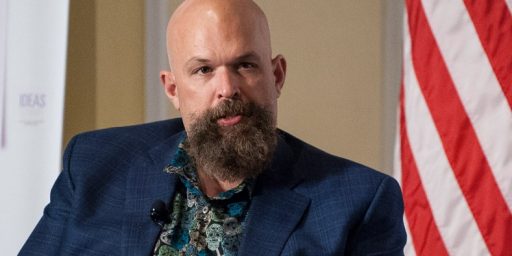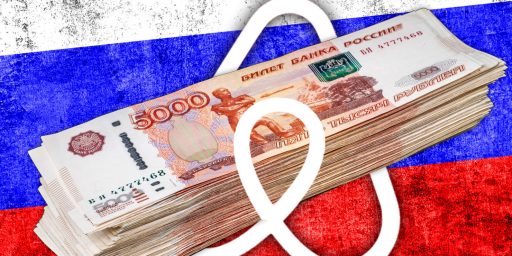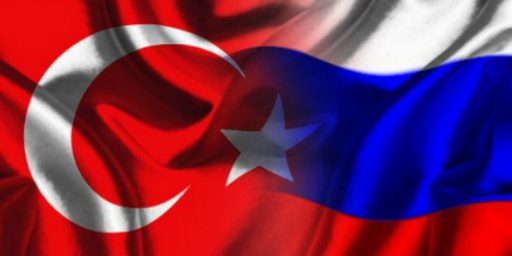The Limits of Realism in the Russo-American Relationship
This morning there’s an interesting op-ed in the Washington Post by three leading Russian intellectuals, urging the Obama Administration not to allow a return to realism in foreign policy between the United States and Russia to become a rubric under which “American experts serve as the “conservators” of Russian authoritarian traditionalism”:
MOSCOW — As intellectuals and liberal Russians, we have read with great interest many recommendations American experts have compiled for President Obama regarding the U.S.-Russian relationship. While there are several constructive ideas, many of these reports reflect a serious misunderstanding of the situation in Russia and the course it is following.
We object, for example, to the basic proposition of calling for a return to realpolitik because some believe that the worsening of Russian-American relations was mainly caused by Washington’s insistence on “tying policies to values.” The result, some American “realists” argue, is that the United States needs to build a new relationship with Russia based on “common interests and common threats.” Yet in blaming the Bush administration for trying to “teach” Russia about democracy, these realists appear to accept the official Russian position. In our view, America has ignored the problems of democracy and civil society in Russia, but even turning a blind eye did not prevent the breakdown in the U.S.-Russian relationship — and now Obama is essentially being asked to treat Russia as though it is incapable of democratic transformation.
While there is anti-democratic sentiment here, such feelings are not ubiquitous. In fact, nearly two-thirds of Russians would like to see the establishment of democracy and the rule of law, according to a 2008 Levada Center poll. The ruling elite oppose the development of democratic institutions, but the key is that members of the elite are more than ready to integrate into the Western world on an individually beneficial basis; they will do everything in their power to “protect” the rest of Russian society from the perils of such integration.
There is a two hundred year tradition of Russian liberals and intellectuals being out of touch with what the Russian people want. If Russians want democracy so badly, why do they elect autocrats and why are the autocrats so popular? The issue is less what Russians’ priorities are and more what their subpriorities are. I’m sure that the Russian people do want the establishment of democracy and the rule of law but I suspect they also want to put food on the table, peace and security, and even a return to some aspects of the old days when the Soviet Union was a world power. Nationalism is not a dirty word in Russia today.
It’s how they establish the relative priorities among democracy, the rule of law, economic well-being, and so on that will determine Russia’s future course.
The course of action that the authors are urging on us seems to be something along the following lines:
Brookings Institution President Strobe Talbott helpfully proposed in February that the West “should create conditions that will, over time, convince the Russians that their post-Marxist, post-Soviet, Hobbesian experiment is, in fact, unrealistic. It simply won’t work.”
I can’t help but recall that during the period in which Strobe Talbott was Ambassador-at-Large and Special Adviser to the Secretary of State on the New Independent States that the foundations of the current Russian system were laid with the assistance of a flood of Western experts. At the time I was concerned that Russian institutions had to be grown on Russian roots and that foreign grafts were unlikely to flourish. This has proven to be the case and I suspect it will remain to be true.
Unfortunately, I don’t think that we have the patience or, honestly, the interest to follow the course of action prescribed by the authors that will allow native Russian institutions to create the conditions that will lead to a more benign Russia.






Exactly how many chances have the Russians had to vote out authoritarian in free elections?